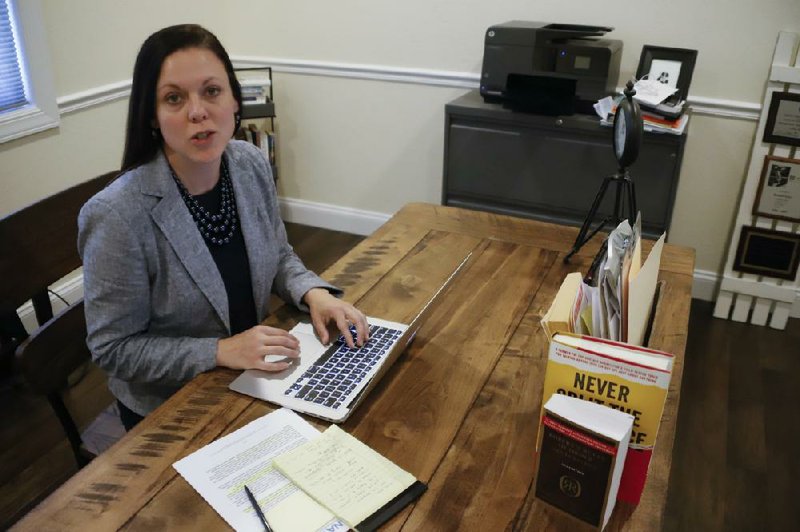HARRISBURG, Pa. -- Tens of thousands of medical workers across the United States are suddenly out of work as operating rooms and doctor's offices go dark, casualties of urgent calls to prioritize coronavirus patients at overwhelmed hospitals and of the economic waves the crisis is churning.
Even as hospitals scrounge for professionals from the industry to treat the burgeoning numbers of people with covid-19, others are on the sidelines as elective procedures, diagnostics and appointments are canceled or postponed.
For instance, many nurse anesthetists in Pennsylvania have been laid off, even though they are particularly critical to the coronavirus response because they can help intubate patients and manage them on ventilators.
"I certainly never thought there would be a day as a nurse that I would be filing for unemployment, so it's quite surreal for all of us," said Jess Poole, a nurse anesthetist who, until a couple weeks ago, worked for an anesthesia practice in the Pittsburgh area.
[CORONAVIRUS: Click here for our complete coverage » arkansasonline.com/coronavirus]
Big-city physician and specialist groups, tiny independent hospitals from Oregon to Connecticut, and big multistate hospital systems such as Steward Health Care are seeing big dropoffs in revenue and are laying off or furloughing hundreds of workers.
A tally of out-of-work medical professionals is elusive, since the coronavirus began taking a devastating toll on jobs only in mid-March. Many institutions have said nothing publicly, quietly making cutbacks, and the monthly jobs report issued Friday by the federal government showed 42,000 job losses in health care -- just a small indication of what's to come, because the government surveyed employers before the heaviest layoffs hit.
Not all states release that data in real time, although Minnesota reported that from March 16 through the end of the month, more than 13,600 health care practitioners or technicians filed unemployment claims in the state.
Some layoffs, the generally permanent loss of a job, and furloughs, a reduction in hours or a leave of absence with the option to return, are focused on nonclinical staff members. Elsewhere, clinical professionals -- specialists, lab techs, operating room staffers, nurse specialists, support staffer -- suddenly find themselves with cuts in pay or hours, or sitting at home, including some in coronavirus hot spots.
The cuts are driven primarily by pressure from state and federal officials to shelve elective procedures, appointments, diagnostics and other services to preserve hospital beds, while many patients are postponing appointments to observe social-distance restrictions.
For some provider groups and hospitals, the lion's share of their revenue has dried up.
While $100 billion from the federal relief package signed last month by President Donald Trump might help cover that, it's not clear how the money will be distributed, or how soon, or whether it will be enough.
Erlanger Health System, which operates six hospitals in Tennessee and one in western North Carolina, reported it lost millions of dollars in the past week alone.
"The financial bleeding was immediate," said Chip Kahn, CEO of the Federation of American Hospitals.
The federation said it believes that hospitals are eligible to apply for loans in the federal emergency relief measure to maintain payroll or rehire workers, loans that can then be forgiven.
In the meantime, states reeling from the pandemic are calling for help from medical professionals or relaxing regulations to allow retired workers, students or out-of-state professionals to come to the rescue.
Information for this article was contributed by Michael R. Blood of The Associated Press.
A Section on 04/05/2020
